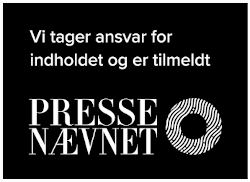Network of sensors to prevent cyberattacks on water utilities
Danish water utilities and wastewater companies are increasingly threatened by unscrupulous cybercriminals. This is the assessment of the Center for Cybersecurity in a new report published on Wednesday.
Cybercrime in particular is a topic that has moved up the agenda in the water sector, explains project manager for IT security Peter Mortensen from the industry organization Danva.
- It is clearly something we are working more on and trying to guard against. Among other things, via the SektorCert collaboration, he says.
SektorCert is a cybersecurity center that monitors internet traffic for, for example, water utilities and energy companies.
- Sensors are set up here that monitor incoming internet traffic in real time. The data flow is then monitored centrally, and we are notified when attacks or attempted attacks occur, says Peter Mortensen.
The threat of cybercrime against the water sector is assessed by the Center for Cybersecurity as "very high". This is particularly the case with so-called ransomware attacks, where data and systems are made inaccessible to the victim, often by encryption. The attacking party often demands some form of ransom to unlock the systems again.
Several companies have been affected
In recent years, there have been several examples of utility companies that have been affected. Among others, Kalundborg Forsyning, Tønder Forsyning and Fanø Vand.
The report from the Center for Cybersecurity also mentions a recent example from late 2024, when a smaller waterworks was hacked by a pro-Russian cyber activist hacker group.
The attack resulted in 450 households briefly having no water due to low water pressure. Later, approximately 50 households were without water for several hours when increased water pressure resulted in a burst water pipe.
At Danske Vandværker - the trade association for approximately 1,600 smaller, consumer-owned water utilities - there is no overview of the number of cyber attacks.
- But there is no doubt that it is happening, and that the trend is increasing, says national chairman Jan Andersen.
There are efforts on several fronts, he explains.
- We are working purposefully to improve our members' IT preparedness and IT security. From courses and a code of good board work to written information, templates and a preparedness game that can help increase the boards' focus on potential challenges, he says.
/ritzau/




